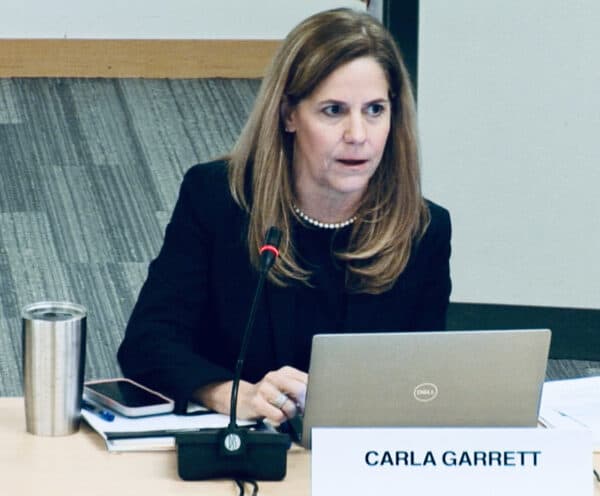
In a diplomatically worded missive, the Securities and Exchange Commission, Small Business Capital Formation Advisory Committee, has posted a “Parting Perspective Letter” regarding its efforts in recent years while outlining its recommendations – that the Commission has ignored.
The letter, signed by Committee Chair Carla Garrett and Vice Chair Jeffrey Solomon, states that it has worked under the premise that “small business is the lifeblood of our country.”

The document states that it is crucial that the SEC does everything it can do to improve capital formation for these smaller firms.
“To keep small businesses healthy – so that they are in a position to grow and create more jobs – we believe it is imperative that the SEC do all it can to foster capital formation even as it maintains the necessary protections for the investors providing that important capital,” states the Committee.
Noting that most money is raised in a few startup hubs – with 70% of all VC concentrated in these regions, the Committee is concerned that there remain “numerous barriers” to underserved communities such as minority founders.
The letter adds:
“The SEC has a vital role to play in creating robust ecosystems for these investors while carefully balancing the need for adequate investor protections. Our Committee continues to see an urgency here because, frankly, most of the large investors, who will continue to get larger, are expected to further reduce their already limited focus on financing small companies. To address this issue, we need to promote the growth of diverse entrepreneurial ecosystems, by providing pathways that make it easier for investors to find and finance small-business investment opportunities. Otherwise, too many small companies will be at risk of “dying on the vine” – and with them their innovation, job creation, and economic opportunities that fuels our country’s global economic dominance. [emphasis added]
The Committee then outlines the litany of common sense recommendations provided in past years that have yet to be acted upon by the Commission.
At the top of the list is Regulation D and the Commission’s move to make it more difficult to raise money under the popular exemption. The Committee states that the “Commission may be considering changes to Regulation D, the Committee has not been in favor of making Regulation D harder to use by increasing disclosure requirements,” telling the Commission to “do no harm.”
As part of Reg D, the Committee tells the Commission NOT to make it more difficult to become an Accredited Investor advising the Commission to expand the definition instead as it is a “critical source of early-stage capital for small businesses in communities across the country,” adding that changes by the Commission could “shrink the pool of currently accredited investors would have a detrimental effect on small business capital formation.”
The Committee chastises the Commission for pursuing public company rules that undermine public markets and impede smaller firms from attracting capital and spurring innovation.
“The flexibility afforded by the rules for Emerging Growth Companies and Smaller Reporting Companies, including exemptions, scaling, and phase-ins for new requirements where appropriate, allows smaller companies to build their businesses and balance the needs of companies and investors while promoting strong and effective U.S. public markets. Absent these accommodations, private companies may be deterred from going public and existing small public companies may face greater challenges in remaining public.”
A common refrain from the Committee has been supporting more access to opportunities for smaller investors. The Committee reiterates its recommendation that the Commission “promote local offerings, where investors are more likely to have a relationship with the company and explore ways for crowdfunding to be made more accessible.” The Committee tells the Commission to create a new exemption for micro-investments – not limited to accredited investors. At the same time, the Committee advises the Commission to allow for pooled investment funds for private securities that provide access to retail investors.
Along a similar line, the Committee advises the Commission to enable “the existence and growth of small funds” as larger funds tend to focus on more mature firms and access to the “earliest stage capital” is “catalytic” to startups’ success.
Finally, the Committee comments positively on the one area the Commission continues to pursue with vigor – effective enforcement, and education. Some see this as an extreme characteristic of the current Commission while it ignores its mission of capital formation.

As was covered recently, current Commission leadership has done little to pursue the Committee’s recommendations – even while being mandated by law to respond to the Committee’s requests. To quote the law that created the Committee, the Commission is compelled to:
“… review the findings and recommendations of the Committee; and (2) each time the Committee submits a finding or recommendation to the Commission, promptly issue a public statement— (A) assessing the finding or recommendation of the Committee; and (B) disclosing the action, if any, the Commission intends to take with respect to the finding or recommendation.”
Unfortunately, the law does not provide for any recourse when it is ignored and “promptly” is open to interpretation.
The Committee has effectively and diligently pursued its mission to provide salient advice and recommendations for the Commission to assist smaller firms. The Commission has failed in its responsibilities to enable these recommendations or, at a minimum, explain why they have decided not to.

